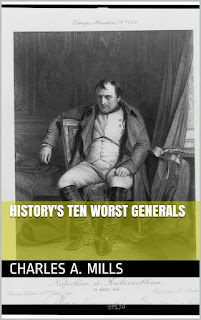On December 23, 1835, one
hundred and ten men under the command of Major Francis Dade left Fort
Brooke (present-day Tampa), to reinforce and resupply Fort King (present-day Ocala). Relations between the United States and the Seminoles in Florida had grown
increasingly hostile as the U.S. Army tried to forcefully relocate the Seminole
to reservations in Indian Territory (present day Oklahoma).
Major Dade knew he might be attacked, but
having crossed several rivers and the thicker woods, he felt relatively safe
and called in his flanking scouts in order to increase the speed of the
marching column. Major Dade had no idea of the number of enemies he might be
facing or where they might be. His
column was now completely blind.
Meanwhile, Seminole scouts watched the troops in their sky-blue uniforms
every foot of the way.
The troops marched for five quiet days
until December 28, when they were just south of the present-day city of
Bushnell. Suddenly, they withered under a volley of fire delivered by one
hundred and eighty hidden Seminole warriors.
Major Dade and half of his men were brought down immediately.
No organized defense was made. The cannon was discharged several times, but
the men around it were quickly shot down.
Most of the soldiers, still in two single file lines, were quickly
killed. Only three U.S. soldiers were reported to have survived
the attack.
Lack of intelligence
about the enemy, combined with the enemy’s use of terrain and the element of
surprise account for this U.S. Army defeat.
History's Ten Worst Generals





No comments:
Post a Comment